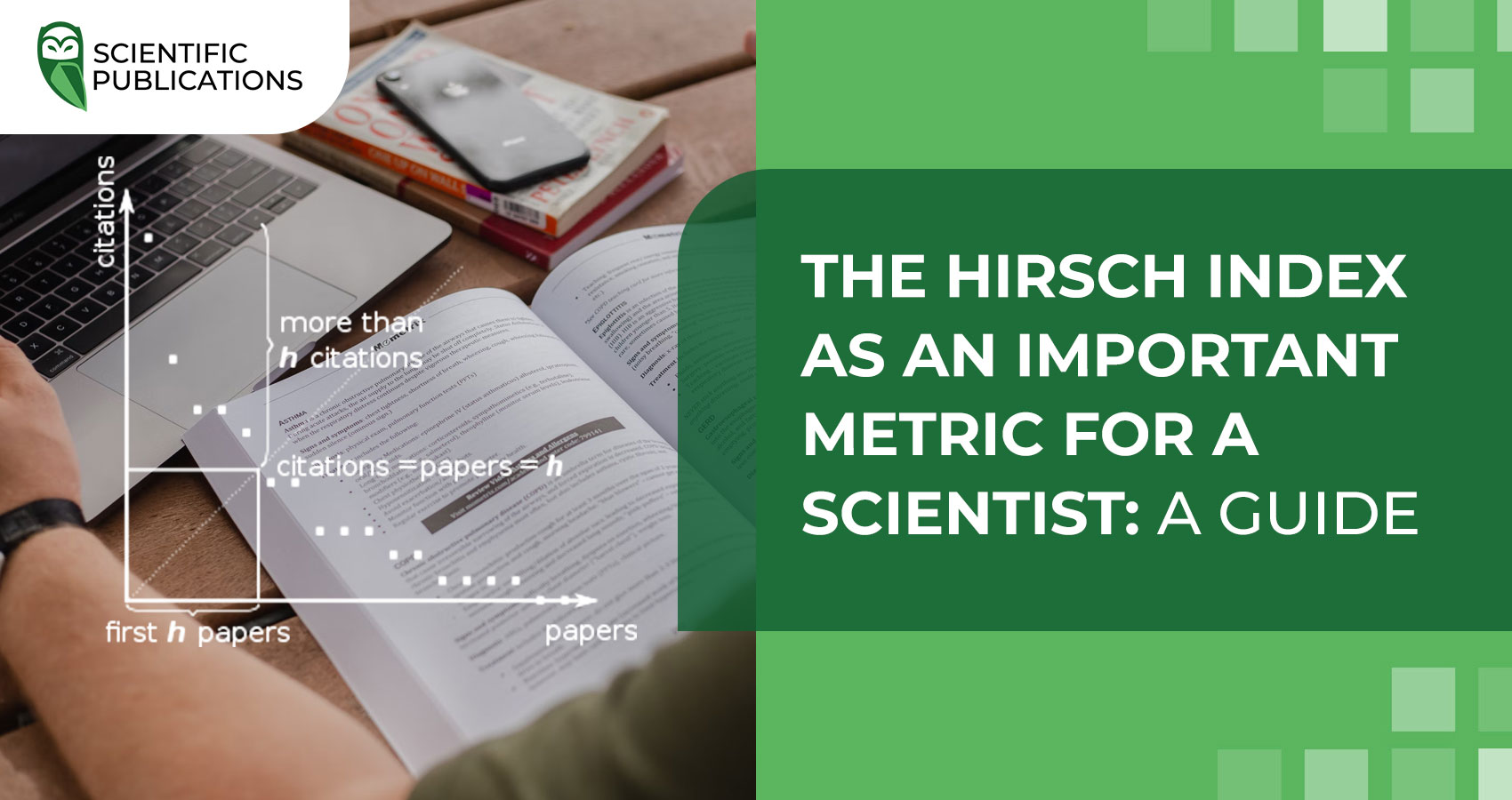Citation is an important part of scientific research and publications, as it allows scientists to exchange knowledge and ideas, establish new theories and develop science. In this article we will consider the main aspects of citing in scientific articles, an understanding of which will help authors to optimise the process of citing their work and improve their scientific ranking.
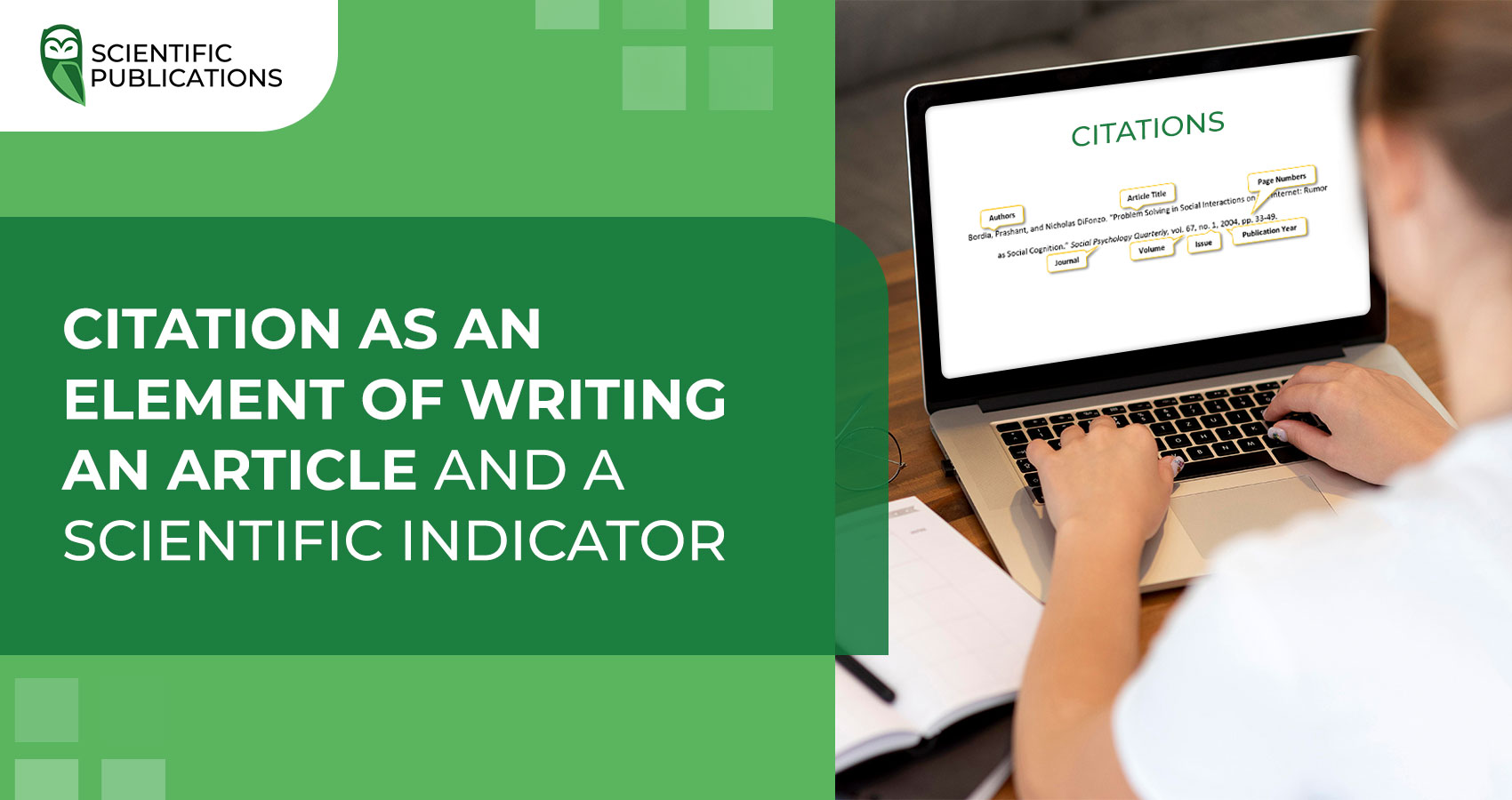
Citation and its role in scientific articles
Citation in scientific articles is necessary for:
- Acknowledgement of the ideas and research findings of other scientists.
- Providing readers with the opportunity to consult primary sources.
- Establishing confidence in their results by demonstrating that they are based on verified data.
- Promoting scientific communication and establishing a scientific community.
Basic rules of citation in scientific articles
The following aspects should be considered when citing:
- Choice of citation style (APA, MLA, Harvard, etc.).
- Correct design of references and bibliographic list.
- Avoiding plagiarism by citing the source when using others' ideas.
- Correct use of direct and indirect quotations.
How to issue citations in scientific articles?
There are two main steps in the citation of scientific articles: in-text citations and references. There are many citation styles, such as APA, MLA, Chicago and Harvard, each of which has its own rules
APA Style
The APA (American Psychological Association) style is one of the most common styles for citation design in scientific papers, especially in social and behavioural sciences. Here are the basic rules for citations in APA style.
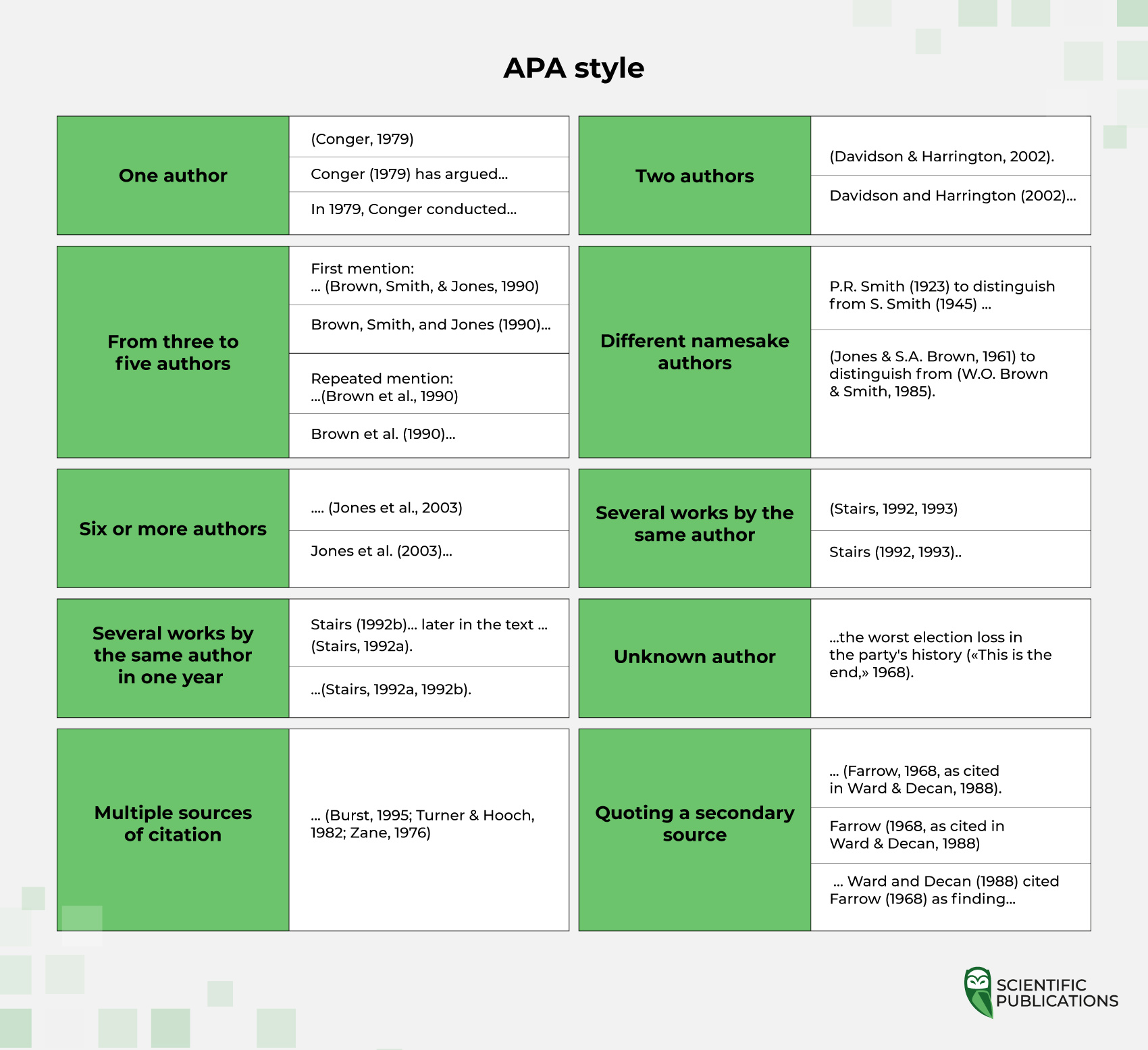
MLA Style
MLA (Modern Language Association) style is another popular citation style often used in the humanities, such as literary studies, art criticism and linguistics. Here are the basic rules for citation by MLA style.
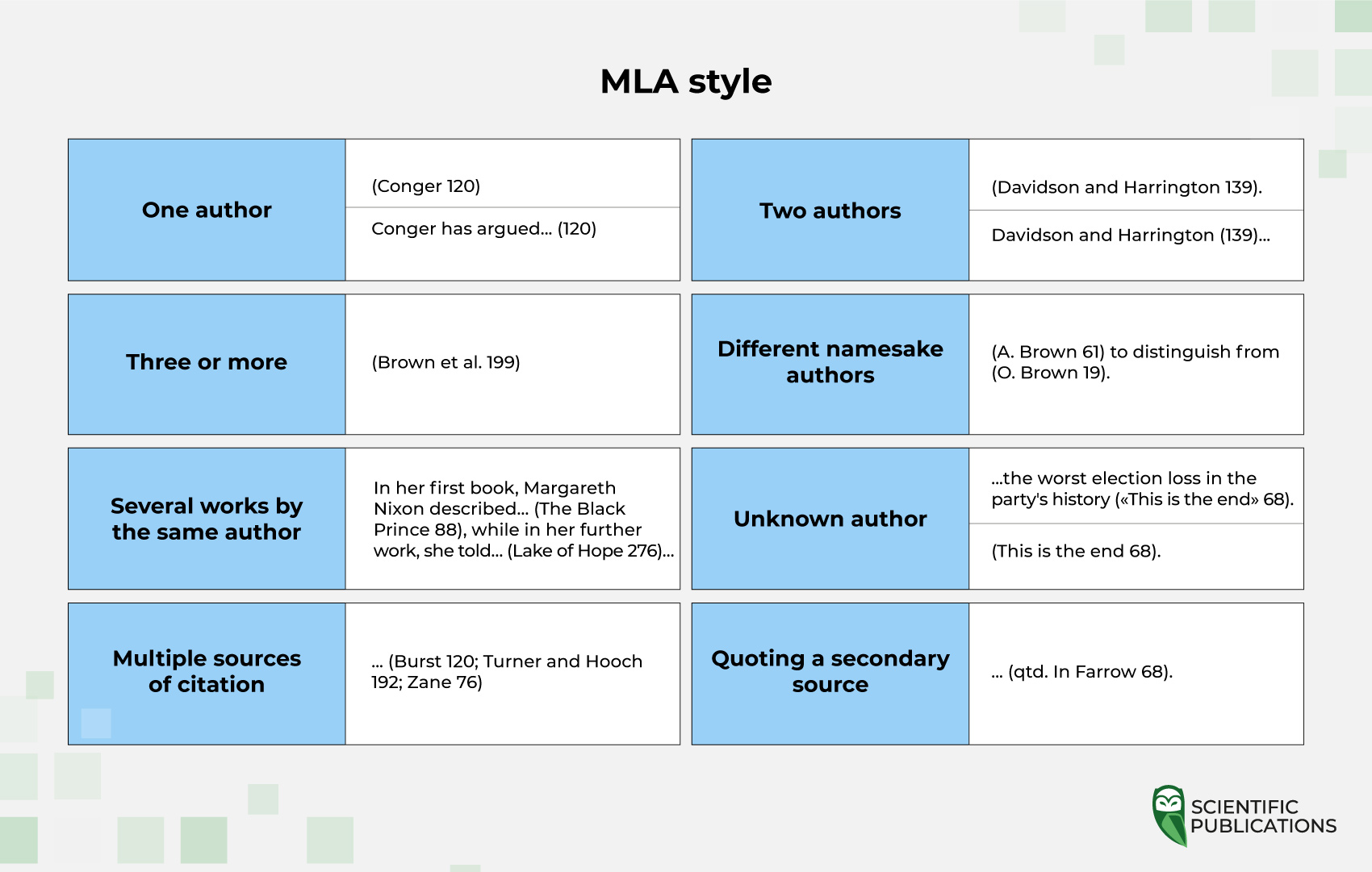
Chicago Style
The Chicago style - another popular style of citation design, often used in history, art, and other humanities. The Chicago style has two main variants: footnotes/endnotes and author-date. Here are the basic rules for Chicago style citations.
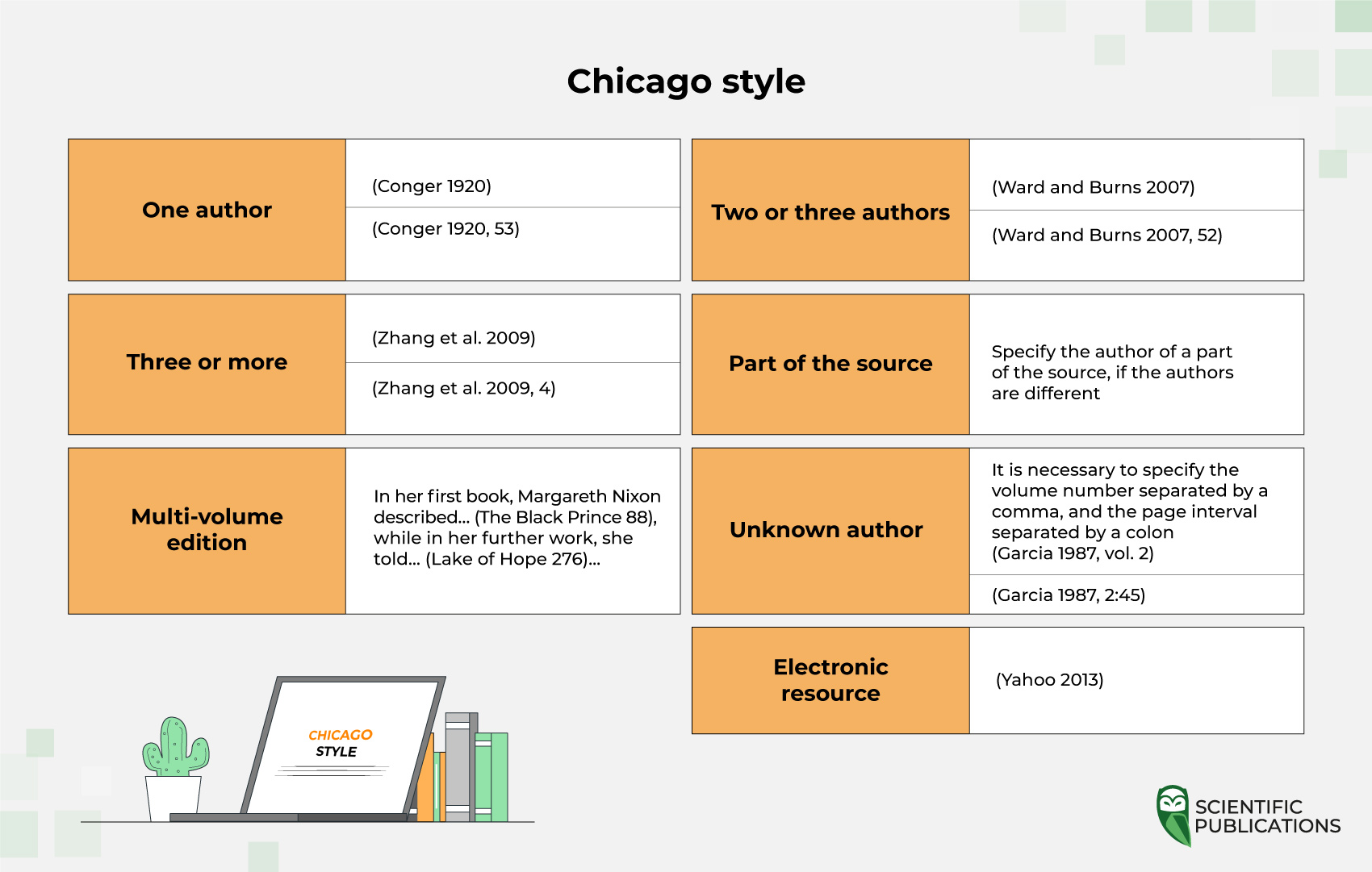
Harvard style
Harvard style - an author-date citation system widely used in many academic fields. It involves using in-text references and a list of references. Here are the basic rules for citations in Harvard style.
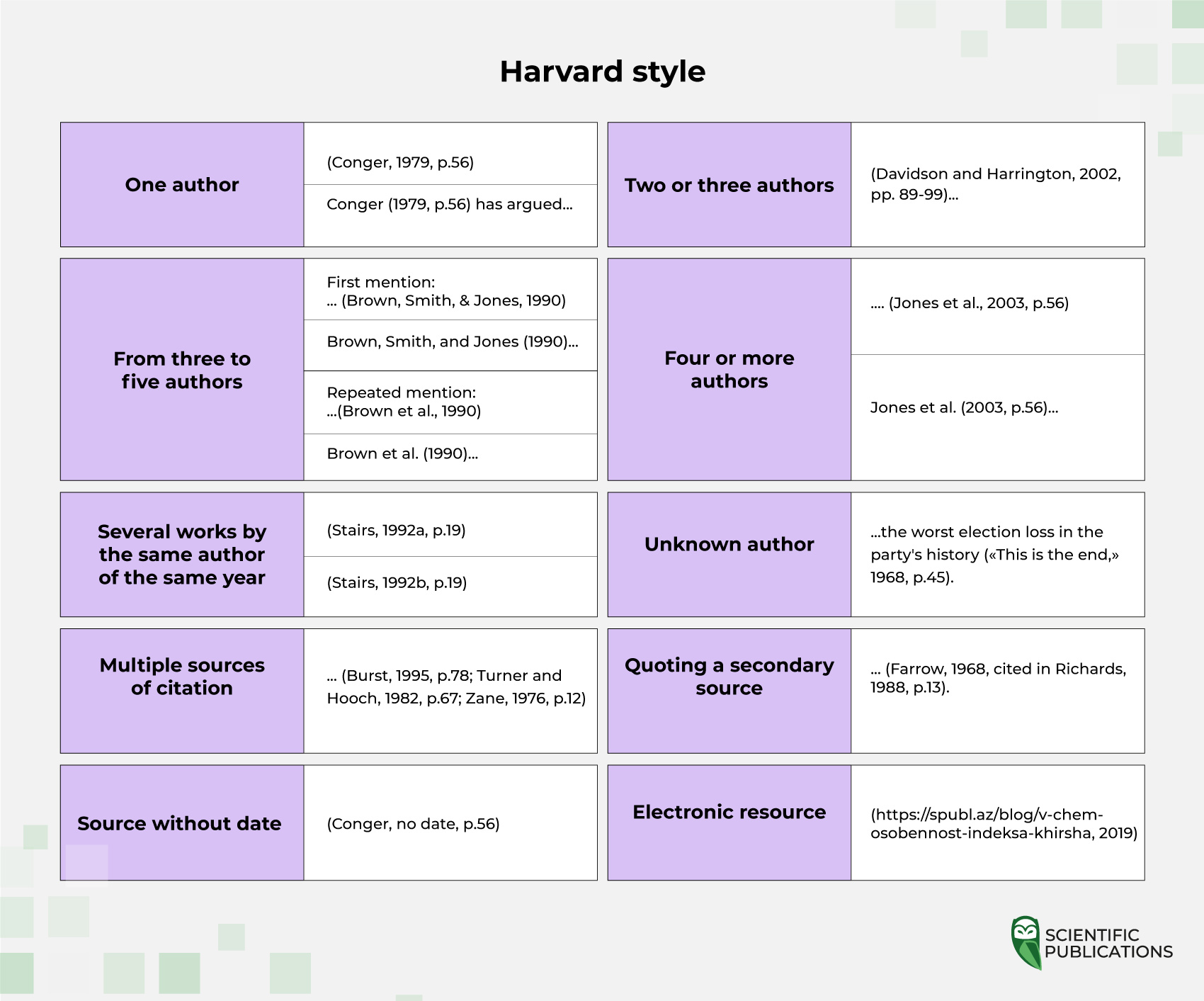
When selecting your citation style, make sure you are familiar with the requirements of the scientific journal where you plan to publish!
Why is it necessary to increase the citation rates?
Increasing the citation of scientific articles has a number of advantages for authors and scientific organisations:
- Increase the visibility of research, which attracts the attention of colleagues and potential employees.
- increasing the authority of the researcher and his scientific achievements;
- improving positions in national and international scientific rankings;
- the possibility of obtaining grants and financing scientific projects.
In addition, the citation is associated with the main scientometric indicators, for example, the Hirsch index. The growth of other indicators will depend on how high the citation rates of the author, article, journal will be.
Strategies for increasing citation rates
To increase the number of citations of their scientific articles are recommended:
- Publish articles in well-known and reputable scientific journals.
- Use relevant and important research subjects for the scientific community.
- Conduct qualitative research using new and proven methods.
- Collaborate with scientists from other fields, expanding your audience.
- Actively promote their work on social networks, at scientific conferences and other events.
- Contact the specialists of the company Scientific Publications.
By following these guidelines for increasing citation rates and considering the key aspects of citation in scientific articles, authors and scientific organisations will be able to improve their scientific reputation, increase the visibility of their research and enhance opportunities for collaboration and scientific development.
Proper use of citations in scholarly articles and optimising the process of citing one's work will help scholars enhance their reputation, improve their scholarly ranking and promote their ideas in the academic community. By considering the key aspects of citations and applying optimisation strategies, authors will be able to increase the number of citations of their work, which in turn contributes to the development of science and scientific communication.
If you need help with improving the citability of your work in Scopus, Web of Science and Google Scholar, contact the experts at Scientific Publications. We will ensure that the necessary indicators are organically raised to the required level.



